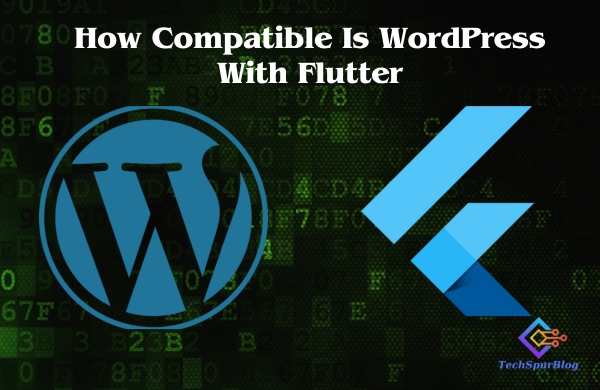
The two most influential players in web and app development are WordPress and Flutter. WordPress is one of the most popular content management systems, favored for its flexibility and user-friendly interface for website building.
In contrast to Flutter, an open-source SDK (Software Development Kit) by Google which has gained great popularity, it allows developing native compiled apps for mobiles, webs as well as desktops using a single codebase.
The combination of these platforms will definitely bring about a necessary understanding and awareness for developers and companies aiming to take them to the next level and leverage what they have.
Understanding WordPress Development
WordPress development services include a variety of actions, such as designing, creating personalized themes, installing plugins, and looking after them. Businesses more frequently choose custom WordPress development services to create unique options that fit their specific needs.
Understanding Flutter Development
The core competence of the Flutter development services is the creation of cross-platform applications with a native-like interface. Flutter’s ‘hot reload’ feature enables the developers to rapidly iterate and test the modifications, making it at the top of the list for app developers.
Also Read: Exploring Flutter: How Brands Can Maximize its Benefits
Flutter-WordPress Integration
Integrating WordPress with Flutter is one of the core issues in assessing compatibility. This can be achieved in a number of ways, including using the WordPress REST API to fetch content for Flutter apps, integrating WordPress with Flutter for user login, and, in the case of an app-building project, using WordPress plugins to get more functionality.
Benefits of Using WordPress with Flutter
Content management:
WordPress is a platform for content management that is extremely advanced; therefore, companies can comfortably change their content. In addition, with the implementation of Flutter within WordPress, instant delivery of content is made to mobile apps.
User Experience:
Flutter’s UI toolkit helps you create visually pleasing and responsive mobile apps without any complications. Firms can make use of Flutter not only to satisfy the interface needs of websites and mobile devices but also to integrate the conformity of applications across platforms.
Cost-Effective Development:
Programmers can utilize the existing WordPress content and features of Flutter apps to cut development time and costs tremendously.
Scalability:
Scalability turns out to be a known positive for WordPress. It handles websites of all kinds and sizes without any problems being faced. WordPress execution in Flutter enables companies to have websites that deal with online complexities. Thus, they will not have to depend on the slow operating environment.
Enhanced Customization:
WordPress allows for customization on a very large scale through the use of themes and plugins. Incorporating WordPress with Flutter opens the possibility of taking advantage of these personalizations in mobile apps, which is a great way to align the brand throughout the web and mobile versions.
Businesses can go a step further than others by integrating institutional design elements, interactive settings, and functionalities that are custom-made.
SEO Benefits:
The installation of WordPress decreases the probability of extra SEO tools and plugins, designed for website optimization. This can enable businesses to carry over extensive SEO benefits from websites right to the mobile apps that are created using Flutter.
This integration guarantees that mobile app content is discoverable and relevant, which in turn will enable it to rank well in search engines’ results, thereby making the app attract organic traffic and users’ engagement.
Also Read: Top 5 Flutter 3.13 Libraries for Enhanced App Development
Flutter with WordPress: Challenges and Considerations
While the compatibility between WordPress and Flutter offers numerous benefits, there are some challenges and considerations to keep in mind:
Data Synchronization:
The most important consideration here is the real-time information exchange between the WordPress websites and the Flutter app; thus, updated information must appear on both apps.
Security:
The Flutter app and the WordPress platform should be integrated well with security mechanisms that are aimed at highly protecting the data belonging to users.
Performance Optimization:
Proper caching strategy and data fetching primarily depend on a well-structured caching strategy, which helps in the performance of applications that fetch WordPress content.
Plugin Compatibility:
We can surely not assert that all the WordPress plugins will be compatible with Flutter apps. Providing custom development and module replacements are the aspects that sometimes matter most.
Cross-Platform Integration:
The matter of keeping the uniformity of the user experience across platforms (between Android and iOS) is also convinced to be a problem for all platform developers due to platform-specific issues and different design possibilities.
Content Formatting:
The challenge is in fact the process of coordinating the design and the synchronization of various intricate layouts, multimedia content, and interactive features. Maintaining the basic uniform standards of content formats and styling within the WordPress and Flutter platforms is equally crucial.
Localization and Internationalization:
However, it might be difficult to keep language concreteness as well as local relevance when applying multilingual characteristics and localization patterns in Flutter apps that are tied to WordPress resources with various languages and regional differences.
Version Control and Updates:
Flutter apps and WordPress websites must be running simultaneously. Functioning must be guaranteed against incompatibility and downtime by performing testing and logically planning activities.
Also Read: The Web App Revolution: Exploring the Reasons for High Demand
Conclusion
Lastly, both WordPress and Flutter are platforms that are compatible and can do a fine job of meeting both web and mobile solution requirements.
Through an understanding of the integration methods, the advantages, the challenges, and the real-world applications, companies and developers can utilize the potential of these two technologies together with Flutter to develop first-class user experiences on multiple platforms.
Businesses can formulate a strategy of engaging a full-service WordPress development company to step up the possible growth of their projects. Also, business owners may think of using custom WordPress development services to support them with extra tasks.

Leave a Reply